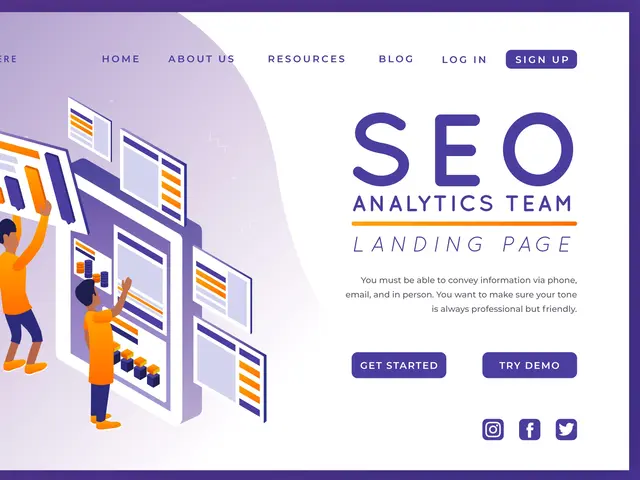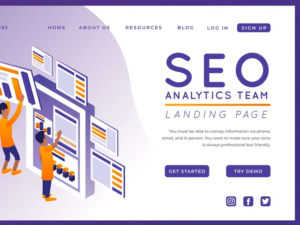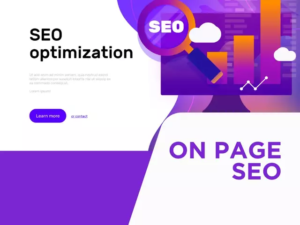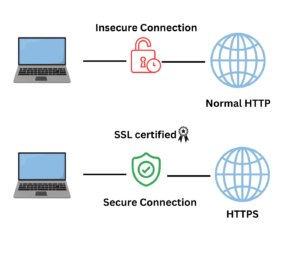Off-page SEO includes tasks done outside your website by our Brisbane web developers to improve how it ranks in search engine results. These activities also impact how users find and interact with your content. In other words, off-page SEO is also called off-site SEO.
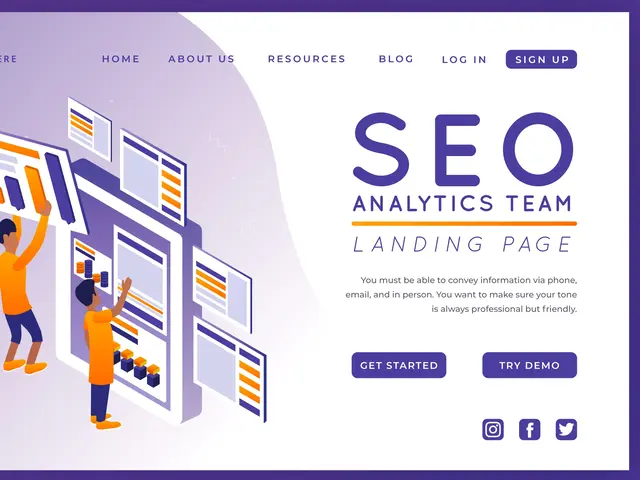
Why is Off-Page SEO Important?
When you combine on-page SEO, technical SEO, and off-page SEO, you achieve a high SEO score. The main objectives of SEO are maximum search visibility, crawling, indexing, web traffic, and conversions or leads. To make all this happen, you need off-page SEO with technical and on-page SEO. Off-page SEO is crucial for bringing user attention and authority to your website. If you need any website optimisation service, we at Web9 can help.
One of the many goals of off-page SEO optimisation is to enhance how users and search engines view a website. In this regard, off-page SEO helps the users and website enhance the following elements:
- Experience and Expertise of the users.
- How authoritative the content is.
- Website Authority(How strong your domain is)
- How relevant and popular it is.
Building backlinks and enhancing your social media presence are two important off-page SEO strategies that show Google and other search engines how reliable and reputable your website is.
When reputable or authoritative websites include your link in their content, it validates your content’s relevance and accuracy. This signals both search engines and users that your business is credible and deserves a prominent online ranking.
Building this trust, however, takes significant effort. While it may come naturally to some, the primary goal of off-page SEO is to establish a solid online reputation. This credibility ensures your content is discoverable by search engines and chosen by your target audience.
How Does Off-Page SEO Work?
I’ll explain this section with an interesting example:
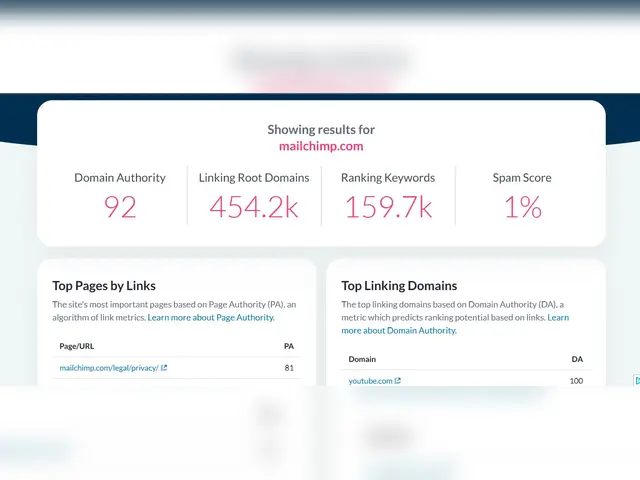
When you search for mailchimp.com, its high Google ranking suggests strong domain authority (DA). To confirm, we checked moz.com and found it has an impressive DA of 92. Mailchimp boasts 454.2k backlinks, ranks for 159.7k keywords, and has a low spam score of 1%, showcasing its exceptional off-page SEO performance.
Backlinks are a key element of off-page SEO. These links, embedded on other websites, signal search engines that your content is valuable and trustworthy, boosting your ranking. However, only natural links—earned organically from credible sources—carry weight in off-page SEO. They reflect genuine endorsements of your content, making search engines prioritize your site in rankings.
These organic links enhance the SEO power of your website and the embodiment of the quality and trustworthiness of your content.
Last but not least, The ultimate goal here is to provide rich, trustworthy content that other websites will want to mention.
What is Off-Page SEO vs On-Page?
On-page SEO as the name suggests enhances the on-site structure or features of your website such as keywords, content, title tags, meta description, images, etc. In simple terms on page SEO is all about enhancing or optimising the content that is within your reach or enhancements that are done on your website pages.
Off-page SEO strategy, on the other hand, is all about enhancing the SEO features of your website. These features are not done on your website; they are done off of your website, such as domain links, social media marketing, etc.
See the image below to understand the main differences between the two.
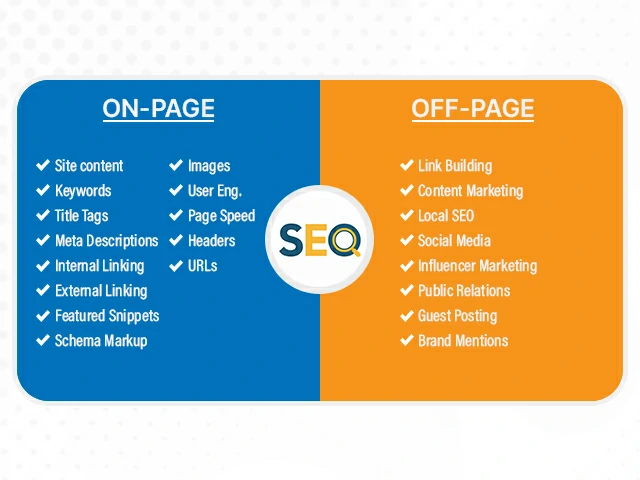
On-page SEO focuses on the following:
- Content
- Headings
- Title tags
- Images
- ALT text for images
- Meta description
- Keywords search d keywords density
- Content structure
- URL structure
- Page speed
- UI friendly
- Mobile friendly
Off-page optimization focuses on the following:
- Authrotativenss of your content
- Domain authority of your website
- Outbound and inbound link-building strategy
- Social media platforms
Interestingly, both are important for local SEO and go hand in hand with each other. You can’t have one without the other.
5 Off-Page SEO Techniques That Work
Link Building
Link building or backlinks refers to when other websites mention your website in their content. Links building can be inbound or outbound. Inbound means linking other articles or pages of your website to a current one. For example, when authors cite their other works as an example in a current article. Outbound link means putting links to other websites in your content for reference.
It’s like we explained above: Build high-quality backlinks. Google will prioritise a website, web page, or URL page as more trustworthy if it has more backlinks, particularly if the links are from reputable sources.
Pro tip: Many websites and platforms are available today that can assess your website’s domain authority based on its number of backlinks. The more organic traffic your website pulls and the more authoritative your content is, the higher your website’s domain authority score will be.
Pro-tip: Do you know you can contact any publication that has inserted or mentioned a now broken link that doesn’t work and convince them to use your up-to-date content as a reference? This is called broken link building. Also, many websites mention your website or content without inserting link-building links. Keep in mind that you can only enhance your DA by actually inserting the link of an authorized website. For example, if a publication mentions or cites your work without linking to it, you can always ask them to add the relevant links as well. These are all part of link-building techniques that you can use.
Content Marketing
Content marketing is another important and popular element of off-page SEO strategy.
Not every content can give you a high domain author score. Even though the content is at the focal point of gaining more backlinks and building an authoritative website’s success, you’ll likely get more visibility if your content is relevant. Have you heard about Google’s algorithm called E-E-A-T?
It’s Google’s guidelines for authoritative content. E-E-A-T means Experience, Expertise, Authoritativeness, and Trustworthiness. The four elements are the ranking factors for good content.
So, if your content is made up of all these elements, it can boost your page’s SEO. Now, content does not mean written content that has paragraphs on the paragraphs(As in this article). It could be digital content as well. So here are some types of Off-page SEO content that you need to take into consideration to enhance your overall SEO:
Social media marketing
Although social media doesn’t have a direct impact on any brand’s SEO in a traditional sense, it is still an effective factor in getting more traffic to your website through your social media content. It works like this: The more people or influencers share a bard or a product, the more traffic that will be generated to that brand’s website.
The more people share your product, the more brand mentions it will get, which will result in more searches for that particular brand. This is a win for off-page SEO strategy.
Public relations:
In terms of public relations, it is an effective way to build brand awareness around digital content. An effective PR campaign can result in more organic traffic to your website. Please note that whatever content you’re building, make sure it follows E-E-A-T guidelines for maximum visibility and SERP ranking.

There is a term called off-page SEO PR, and it refers to the techniques and methods undertaken by the PR professional where they enhance the visibility, the mentions, and the overall reputation of a brand outside the domain of on-page SEO(in a way, off-page SEO strategy means looking after SEO factors outside their control)
Pro tip: Guest posting is another effective way to build trust with a brand, and it happens to be an efficient link-building strategy.
The main goal of off-page public relations efforts is to obtain favourable press and attention from outside sources, such as news agencies, influencers, business leaders, and other important platforms.
Reviews
Another important element of off-page SEO is review building or giving reviews. So why are reviews important? Reviews promote a business in a positive way. They persuade other buyers to buy from your website.
Did you know that positive reviews are one of the most significant elements Google considers when assessing the credibility of your website? And they are crucial for local SEO.
For businesses, Google strongly recommends them to chat with such reviews, whether the reviews are good or bad. This way your potential customers will see that you value their feedback.
Pro-tip: Don’t know how to interact with customers? Well, to start, ask them to provide feedback. Then, communicate with such positive reviews(and negative ones) and feedback to build brand transparency and honesty. The more you interact with your customers, the more the Google algorithm will work in your favour.
Events
Events are an excellent way to create buzz and promote your brand online, driving organic traffic to your website. Sharing event details on social media generates excitement and attracts attention, while attendees can leave reviews and provide valuable feedback.
Additionally, your event webpage can earn backlinks as attendees, speakers, and influencers share it with their audiences. A well-crafted press release further amplifies your brand’s visibility and credibility.
How Do I Check My SEO Off-Page?
There are many ways to check your SEO off the page. We have listed two of them here. For more information, you can click here:
Review your backlinks:
As we’ve discussed before, backlinks are the backbone of off-page SEO. Therefore, if you need to check how well your off-page page is working, you need to see your backlink profile. To do this, you may need the help of SEO tools such as Moz, Semrush, and Google Console. There are many other paid tools in the market, but these three are the best. So whichever tool you use, they all provide the following feature regarding your backlinks.
- Linking Root Domains.
- Top Linking Domains
- Top Search Competitors
- Top Pages by Links
- Discovered and Lost Linking Domains
All of these features are essential to look at if you want to improve your off-page SEO. Furthermore, as discussed above, such tools can give you an overview of your DA, which means the higher the DA score is, the higher the off-page SEO visibility.
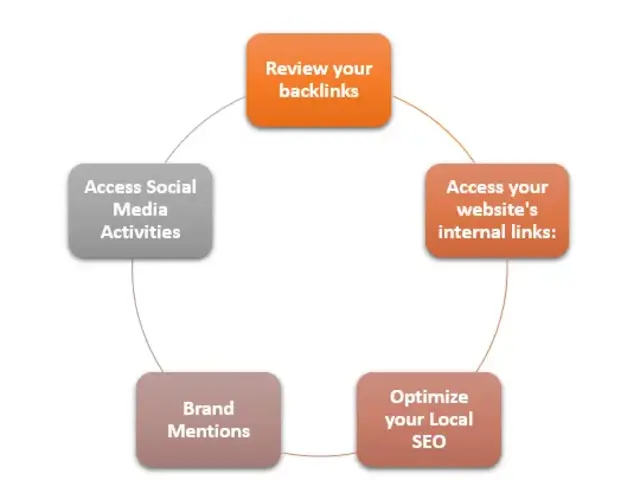
Access your website’s internal links:
This is another critical component of your off-page SEO. In this regard, what you need to do is pretty simple: Update the links within your website that link to different articles so that your off-page SEO approach is optimal for maximum visibility. Each web page on your website should have three hyperlinks from other sites that link to it. Having internal links is very important for your user to navigate to relevant content within the website.
Summary on Off-Page SEO
To wrap things up, off-page SEO is an essential pillar of a comprehensive SEO strategy, complementing on-page and technical SEO efforts. It helps build your website’s authority, trustworthiness, and visibility, making it easier for search engines and users to recognize your content as valuable and relevant.
At Web9, we specialise in crafting tailored SEO strategies that include effective off-page SEO techniques such as link-building and content marketing. By leveraging these strategies, we help businesses enhance their online presence, drive organic traffic, and achieve long-term growth. Let us partner with you to elevate your website’s performance and reach your digital goals. Get in touch with Web9 today!

